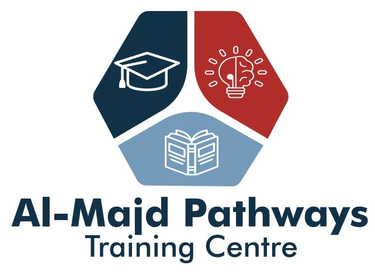
News and Social Media
£5250.00£4800.00
Introduction
The News and Social Media course is designed to provide participants with a comprehensive understanding of the relationship between news journalism and social media platforms. This course explores how news organizations utilize social media to distribute news, engage with audiences, and navigate the evolving digital media landscape. Participants will gain insights into the impact of social media on news consumption, credibility, and journalistic practices.
Course Objectives
News in the Digital Age: Exploring the transformation of news production and consumption in the digital era, with a focus on the role of social media platforms.
Social Media Platforms: Analysing popular social media platforms and their relevance to news organisations, including Facebook, Twitter, Instagram, YouTube, and others.
News Dissemination: Understanding how news organisations utilise social media platforms to distribute news content, reach wider audiences, and enhance visibility.
Audience Engagement: Exploring strategies for news organisations to engage with audiences through social media, including user-generated content, comments, and interactive features.
Ethics and Credibility: Examining the ethical challenges and considerations associated with news reporting on social media, and the importance of maintaining credibility in the digital space.
Verification and Fact-Checking: Developing skills to verify news stories, sources, and information shared on social media platforms, and understanding the role of fact-checking in combating misinformation.
Social Media Analytics: Exploring tools and techniques to analyse social media data and metrics related to news content, audience engagement, and reach.
Social Media Policies and Guidelines: Understanding the importance of social media policies and guidelines for news organisations, including ethical guidelines, legal considerations, and responsible social media practices.
Emerging Trends and Challenges: Investigating the latest trends and challenges in news reporting on social media, such as algorithmic bias, disinformation campaigns, and the impact of social media on news consumption habits.
Case Studies and Best Practices: Examining real-world case studies of news organisations effectively utilising social media, and identifying best practices for leveraging social media platforms in news reporting.
Teaching Approach
The News and Social Media course is typically delivered through a combination of lectures, group discussions, case studies, and interactive exercises. Participants will have access to relevant readings, resources, and tools to deepen their understanding of the subject matter. The course duration may vary, ranging from several weeks to a few months, depending on the depth of coverage and learning objectives. Assessments and assignments may include analyzing social media strategies of news organizations, developing social media guidelines, or conducting research on specific news and social media topics.
Course Outline
Day 1: Introduction to News Journalism and Social Media
Objective: Understanding the evolving relationship between traditional news journalism and social media.
Topics:
Overview of news journalism: From print to digital.
Introduction to social media platforms (Facebook, Twitter/X, Instagram, etc.).
Role of social media in modern journalism.
Case studies of major news outlets using social media.
Activity:
Group discussion: How has social media changed the way you consume news?
Assignment: Analyze the social media presence of a major news organization.
Day 2: Social Media as a News Distribution Channel
Objective: Learn how news organizations use social media platforms to distribute news.
Topics:
Real-time news updates and breaking news on social media.
Social media algorithms and their impact on news visibility.
Trends: Hashtags, trending topics, and virality.
Benefits and challenges of using social media for news dissemination.
Activity:
Practical exercise: Create a social media post for breaking news, considering platform-specific strategies.
Assignment: Track how a news story evolves across different platforms.
Day 3: Audience Engagement and Interaction
Objective: Exploring how news organizations engage with their audiences through social media.
Topics:
Engagement strategies: Comments, shares, likes, and retweets.
Building a community around news content.
The rise of citizen journalism and user-generated content.
Navigating feedback and criticism in real-time.
Activity:
Case study analysis: Look at how a news organization successfully engaged their audience on social media.
Assignment: Develop an audience engagement strategy for a specific news event.
Day 4: Impact of Social Media on News Credibility
Objective: Investigate how social media affects the credibility and trustworthiness of news.
Topics:
Misinformation, fake news, and the spread of rumors.
Fact-checking and verification processes.
The role of social media platforms in controlling misinformation.
How social media has influenced public trust in news.
Activity:
Group discussion: What strategies can be implemented to combat misinformation on social media?
Assignment: Identify a viral news story and investigate whether it was real or misinformation.
Day 5: Ethical Considerations and Future Trends
Objective: Understanding the ethical challenges and future possibilities for news in the social media era.
Topics:
Ethical concerns in news sharing on social media (e.g., privacy, sensationalism).
The future of journalism: Trends in AI, data journalism, and multimedia storytelling.
The role of social media in shaping the future of news reporting.
Activity:
Final project: Create a social media news campaign for a real-world event, incorporating the strategies learned throughout the course.
Assignment: Reflect on how social media may continue to change the landscape of journalism in the next 5-10 years.
Upon completion of the course, participants will have a comprehensive understanding of the impact of social media on news journalism, the challenges and opportunities it presents, and the skills to navigate the dynamic landscape of news dissemination in the digital age.
Certificate of Completion: Upon successful completion of the course, participants will receive a Certificate of Completion from Al-Majd Pathways Centre (APC).
Get in touch with us today.
Follow
Sign-up for our newsletter
0044 7466410010
©2025 All rights reserved.
